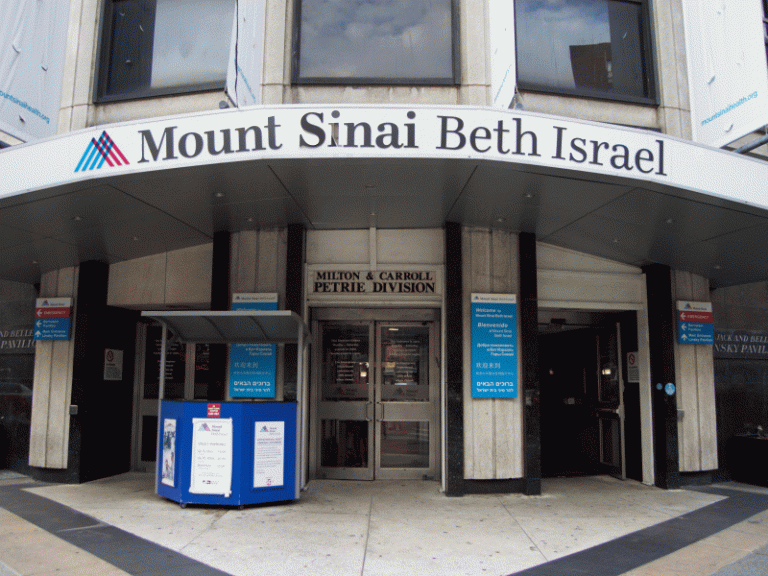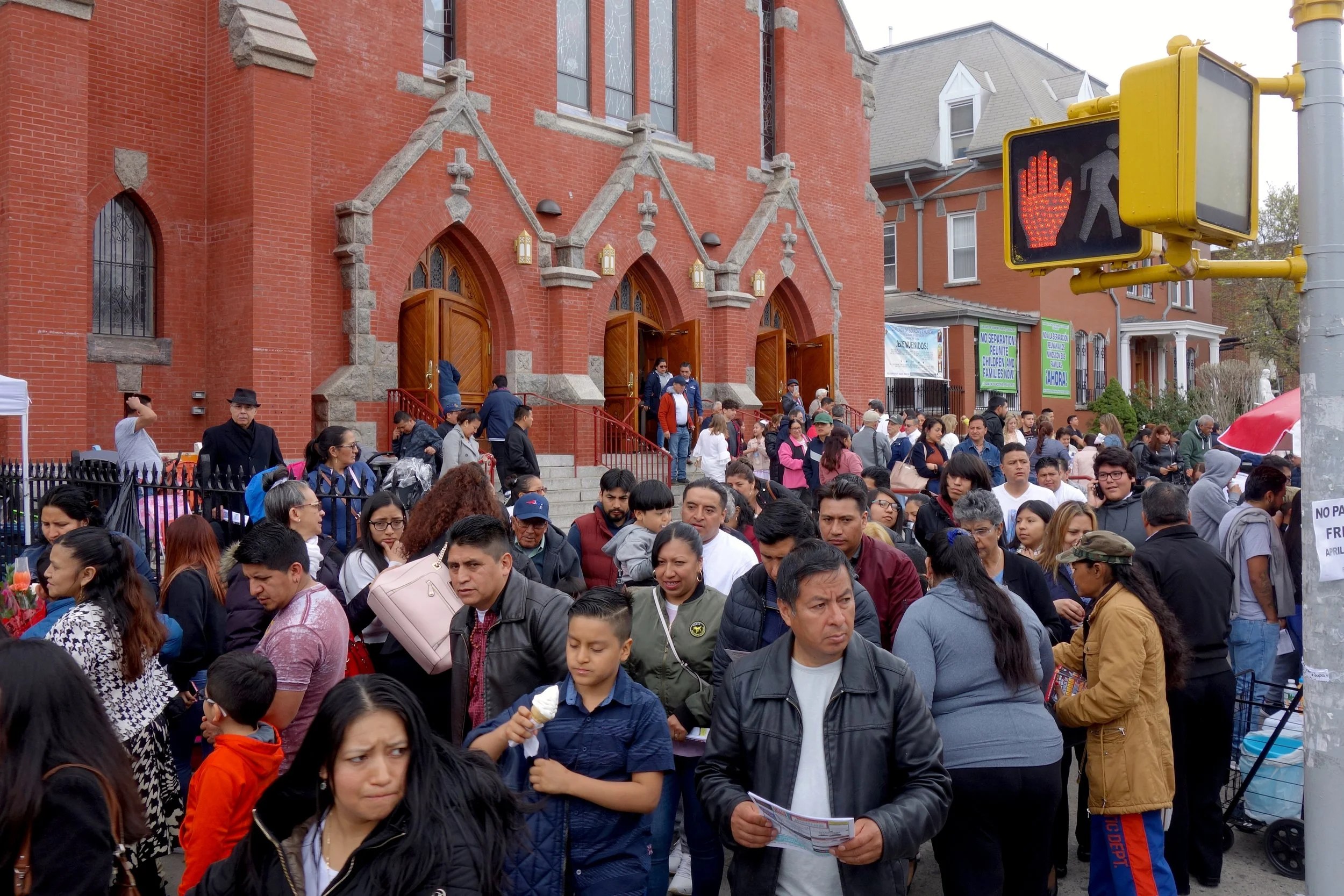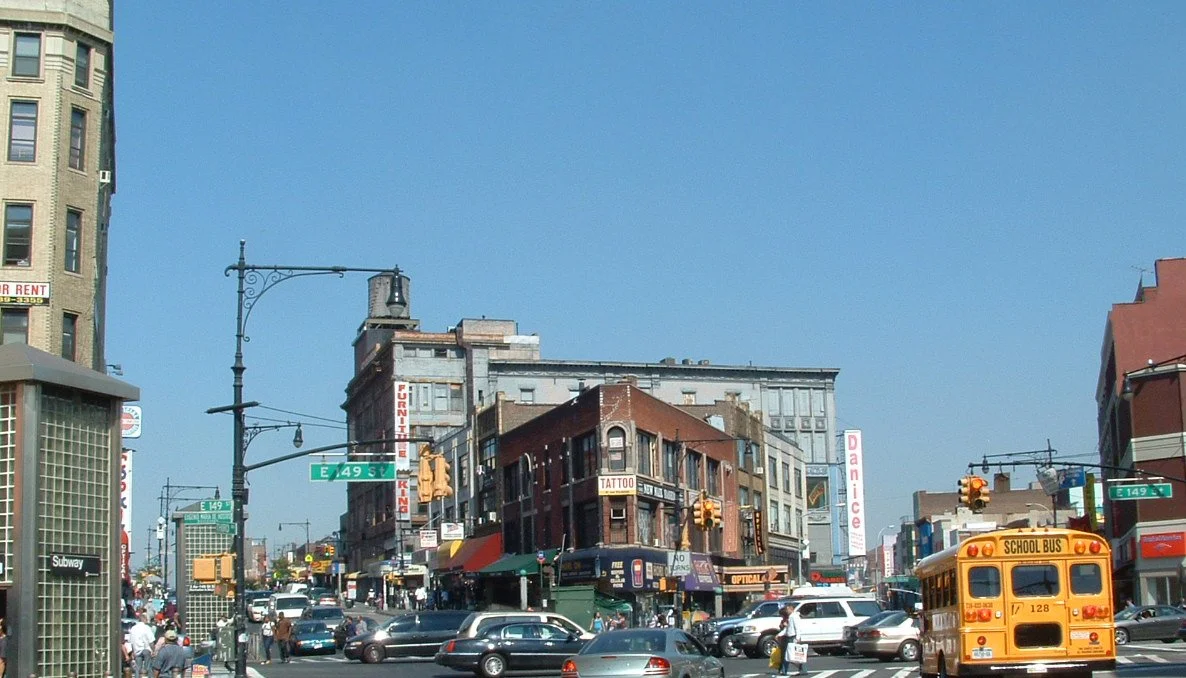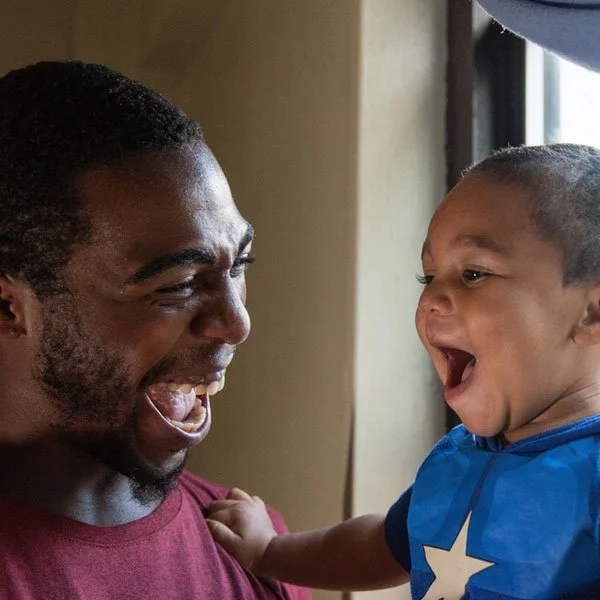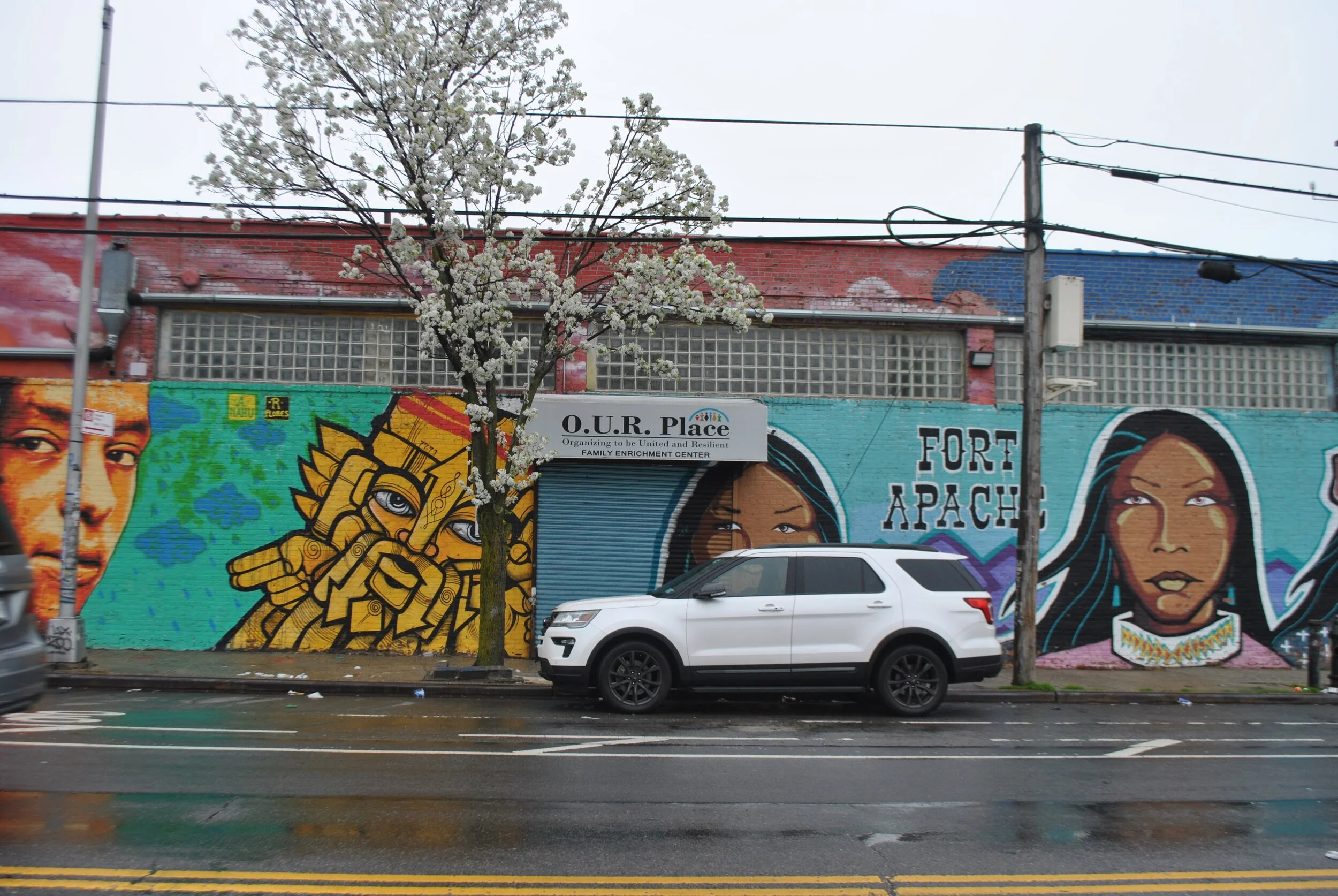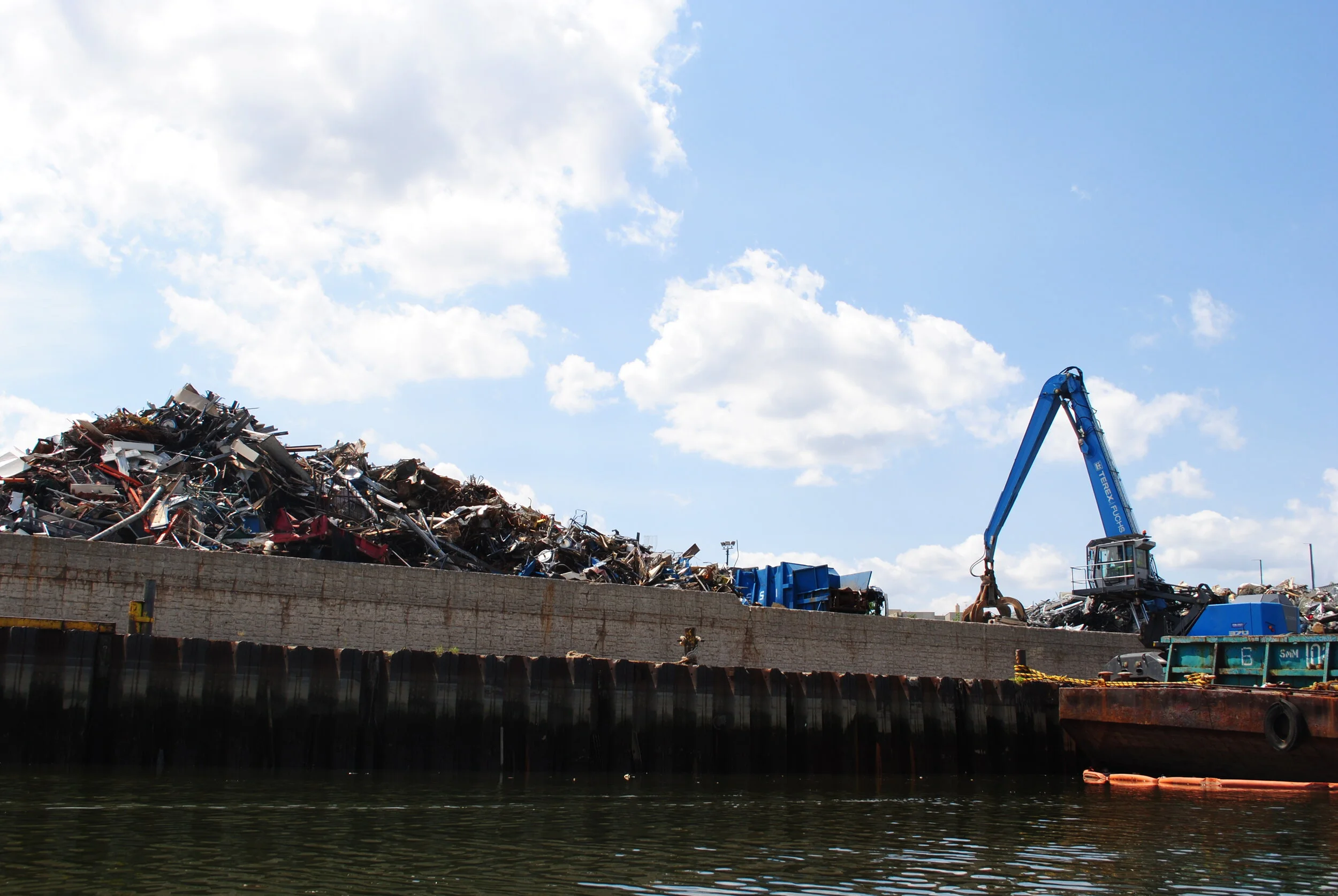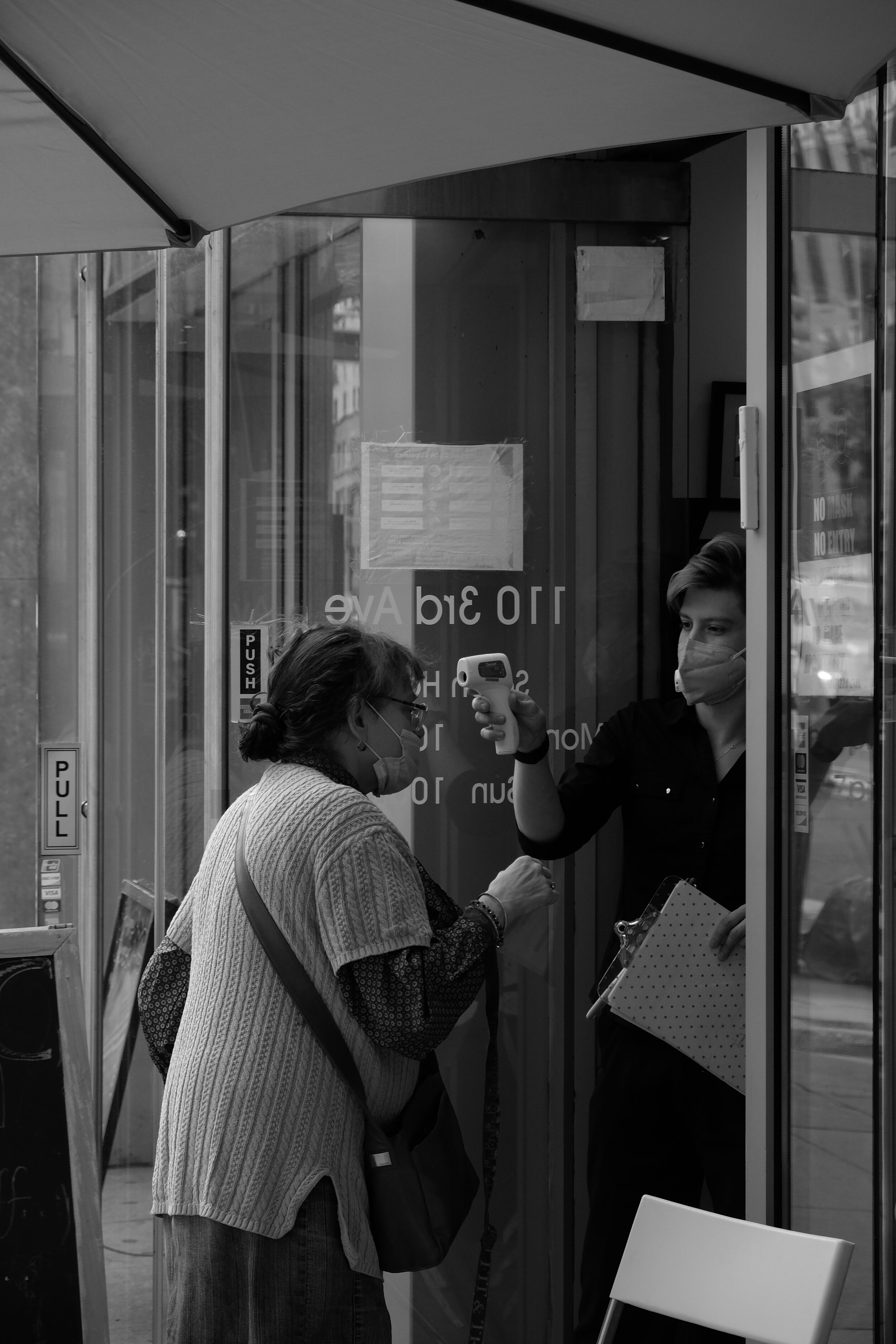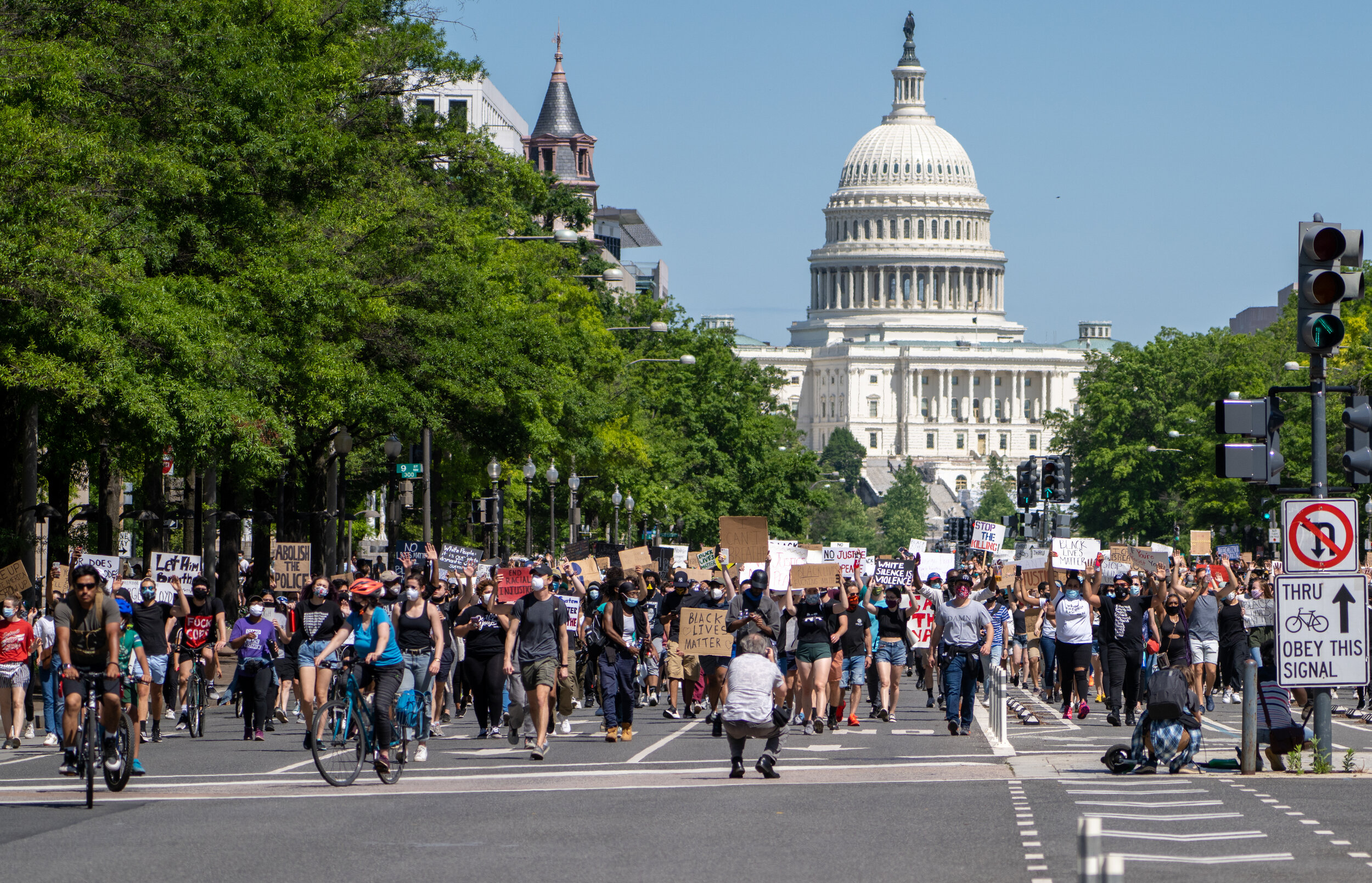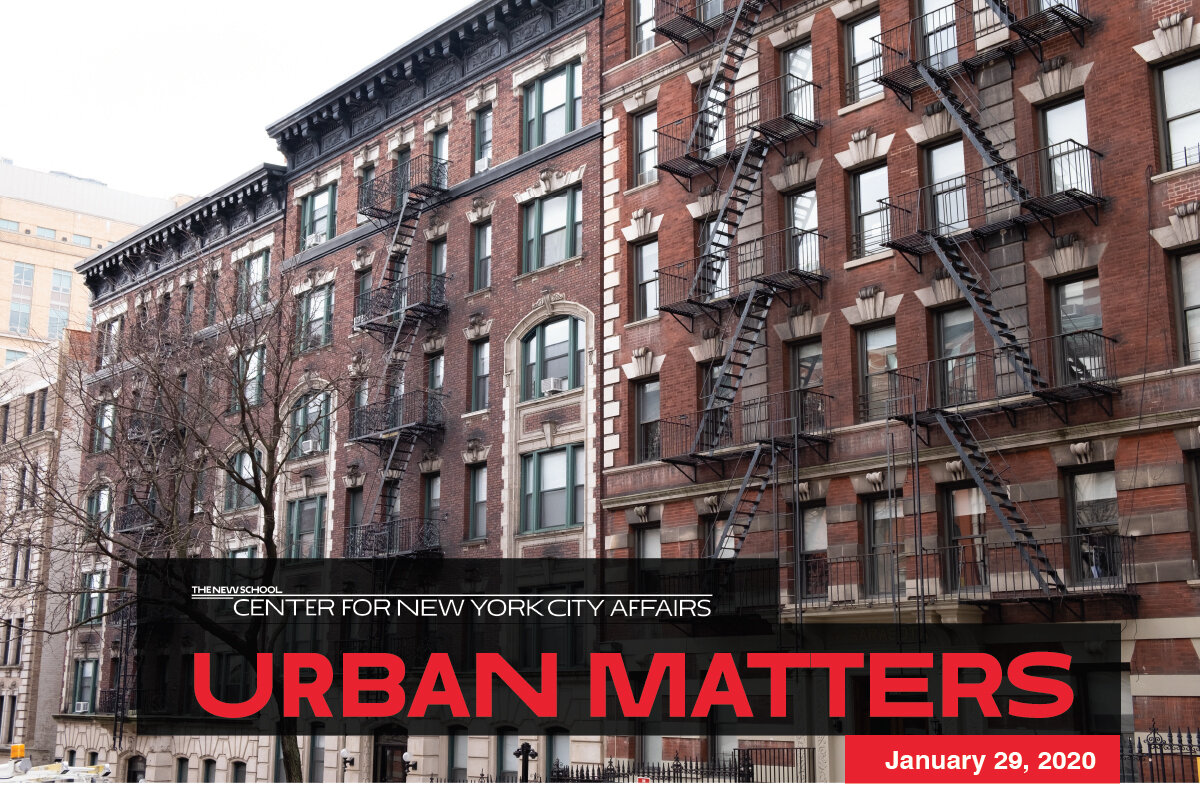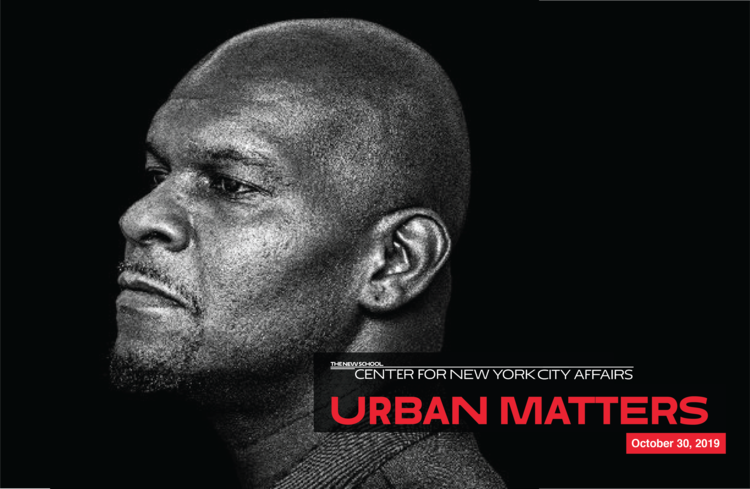Cities have always been the world’s nerve centers of commerce, culture, and communication. And New York is Exhibit A. We’re also a city whose people have a long and proud tradition of striving to create what Robert Kennedy once called “communities of security, achievement, and dignity.”
That’s precisely the goal of the Center for New York City Affairs: Improving the way government works with low-income communities by identifying fixable problems and practicable solutions, in areas ranging from education to immigration to child welfare.
Urban Matters is our newest outlet for ideas and insights on such issues – derived from work on the streets of New York, and from cities around the world.
There’s a mysterious, but strong, subterranean connection between nurturing our gardens, and our democracy.
Strengthening grassroots groups that families trust can be the smart and proactive alternative to over-reliance on the child welfare system.
With economic storm clouds brewing, now’s the time to repair a badly leaky system.
It’s time to get serious about the success of the nation’s largest organic waste collection program.
City officials want to use tax breaks to lure out-of-state employers to commercial buildings struggling with vacancies.
We take a hard look at Governor Hochul’s proposed “inflation refund credit.”
Composting enriches the soil – and enriches young lives, too.
First-hand recollections from the men and women who faced uncertainty and danger so that the rest of us might live.
Despite a legal right to counsel, over a third of New York City tenants appearing in housing court still don’t have lawyers.
Life in one Rikers Island facility can seem like a citywide shoplifters’ convention.
Emphasizing single-family zoning and protecting tenants’ rights can get in the way of increasing the supply of housing.
“A little more housing in every neighborhood” is a start – but only a start.
The motto: “Care, custody, and control.” Translation: “I don’t care, you’re in custody, I’m in control.”
Overwhelmed by news accounts of social division and distrust? A new book highlights individual disrupters creating an alternative narrative.
A year-end message from the executive director of the Center for New York City Affairs at The New School.
A Decameron of New York’s Covid lockdown, and other tales of our time.
Titles that capture the moral, philosophical, and political challenges we face.
Welcome to the latest battle in New York’s long, losing Medicaid wars.
Whatever the outcome for Beth Israel may be, it’s long past time for a fuller public dialogue about the wise and fair allocation of hospital resources across the city and state.
The long pandemic economic slump is behind us – but income inequality is growing, too.
Five years after a landmark local law passed, private waste haulers still put up troubling safety numbers.
Voters face choices about how exercises power, and how, that were framed via a rushed and shambolic process.
If a bustling working- class neighborhood is described as “empty,” is that a prelude to gentrification and displacement?
Bureaucratic hurdles notwithstanding, thousands of older newcomer students are determined to continue their disrupted educations.
A Supreme Court decision permitting penalties for sleeping and camping outdoors leads to legal confusion, hostility, and the potential for heightened human misery.
How Williamsburg’s shopping district transformed as the neighborhood went upscale.
A veteran policymaker argues that reproductive freedom – while crucial – is only one of the key issues for women, nationally and locally.
The personal is political: Looking at decisions about reproductive choice, 50-plus years ago, and today.
Can New Yorkers resilience and diversity counter a post-pandemic rise in poverty and inequality?
The past, as William Faulkner said, is never dead – or even past. A new look at the roots of Brooklyn’s Black communities shows why.
How did the college aid process run amok this year? Let us count the ways.
The nation’s largest public school system is undertaking a massive makeover in literacy instruction.
More than 18 percent of Newark older teens and young adults aren’t in school or working. That’s roughly double the rate for New Jersey as a whole.
A picnic basketful of hot new titles from The New School community.
Asylum-seeking families still face a thicket of obstacles trying to get their kids into New York City schools. It doesn’t have to be that hard.
Living in a homeless shelter was depressing and isolating; finding secure housing and caring relationships turned her life around.
In the Ironbound community, the homes of some 50,000 people border, and are interspersed with, industrial sites.
New York – reclassified a “humid sub-tropical” city – slogged through five “five-year storms” in 2023.
Working a minimum-wage job shouldn’t disqualify you from receiving discounted transit fares.
The state’s rate of on-the-job injuries is far higher than the nation’s – and it’s climbing fast.
It’s called “the city game.” And starting in the mid-1970s, it was a hard knocks life for the Knicks and for New York City.
Adding new housing stabilizes rents and reduces homelessness.
An exploration of the nation’s “billion-dollar problem” with standardized testing.
Emergency Covid relief funds eased pressure on families and child care providers. That’s not an option anymore. Now what?
The maximum benefit to workers hasn’t been changed since 1989. It’s $170 a week.
Necessary change also necessarily requires some painful realizations.
If rents covered only basic maintenance costs – and generated zero profits – they’d still be unaffordable for impoverished New Yorkers.
New York City’s housing market is getting tighter – and new construction alone won’t solve the affordability crunch.
Cut health insurance spending by 10 percent without imposing premiums or reducing benefits? Good luck with that.
Researchers stress the value of heeding the example and accepting the knowledge of a powerful collective voice.
America’s retirement policy rests on dangerous myths about working through old age. It’s time for sweeping change.
How a reform of the college aid application process that started with good intentions has, so far, fallen short.
A tale of two budgets, as State and City leaders reveal spending plans for the year ahead.
Albany seems poised to start weaning New York off reliance on natural gas.
Older workers make up a growing share of the discouraged long-term unemployed who have given up actively hunting for work.
A year-end message from the executive director of the Center for New York City Affairs at The New School.
Tales of intimate heartbreak, sustaining love, sharing Covid lockdown with a lively parrot, and more.
Early childhood education and summer enrichment programs could be the biggest losers.
The meaning of fake hair, the long, strange trip of the Sun Ra Arkestra, a kids’ guide to knowing and cooking pasta, and more.
Successive rounds of budget cuts will hit the schools, even as the clock counts down on a costly requirement to reduce classroom sizes.
A new book of stunning photos captures the extraordinary everyday life of Queens.
Here’s a case for making communal living an answer to the city’s housing crunch and an antidote to a vacant commercial property doom loop.
Progress toward pay equity in the city has stalled in recent years. Here’s a strategy for moving things forward again.
Ending mandated reporting is an essential step toward creating trust with service providers and an alternative system to assist families, the author argues.
Lately, it’s been smooth sailing for New York City public schools – but the outlook is for some rough seas ahead.
The New School’s Urban Systems Lab launches an ambitious three-year project to democratize climate risk planning information on a global scale.
Citywide curbside collection is moving forward. Now let’s focus on participation, composting, and waste reduction.
Will a city of immigrants respond with anger or openness to a flood of newly arrived migrants?
We ask an eminent expert in the field of community mental health about handling the psychic challenges of being strangers in a strange land.
A new book, excerpted here, argues that reforming our existing child welfare system is futile, and that it must instead be eliminated completely.
Navigating the NYC school system isn’t easy for anyone – and the InsideSchools team has been working hands-on with the city’s newly arrived migrants. Here’s what they’ve learned.
Housing neglect is a serious problem. Gutting tenant protections isn’t the solution.
The first minimum pay standard in the nation for app-based deliveristas goes into effect July 12th.
Wherever you go this summer, slip one or more of these intriguing books in your bag.
City agencies are making a mistake by giving volunteers who've been welcoming arriving asylum seekers a cold shoulder.
Reading the uncertain economic tea leaves as City officials make spending decisions for the year ahead.
Pandemic conditions created a perfect rat storm. But New Yorkers can turn things around.
There’s a widening wage disparity with New York’s private hospitals – and an exodus of RNs from public hospitals.
Enrollment in charter schools is up; in other schools, it’s down. What’s the takeaway for education leaders?
How a strategy for economic growth and development can also make for a more equitable city.
A “teacher’s kid” talks about helping families find pathways to education equity for their children in the nation’s largest public school system.
The Fourth Amendment right to be secure in one’s home should apply in child welfare cases.
Crime fell dramatically when New York State started increasing the minimum wage and reducing income inequality. That wasn’t a coincidence.
We know what’s needed: Expanded school-based services. More clinics. Deeper parental involvement. And decent pay for frontline workers.
Community violence intervention programs work. But they’re hemmed in by a too-narrow focus.
An inner-city elementary school thrives as parents work for the common good.
Many workers, heavily concentrated in low-income industries, can’t get unemployment insurance. Here’s how to solve that problem.
City and State leaders want to make it easier to build. But other pieces of the housing puzzle may be more important.
Primarily low-wage workers often suffer from violations of wage standards and denial of benefits. Here’s what City government can do to protect them.
When something doesn’t work, stop doing it. That includes awarding pointless big-ticket tax breaks.
We need to do better meeting the needs of a shamefully underpaid profession.
New York State’s proposed tax and spending plan continues a decade of disinvestment in its people.
It’s time to end policies that result in harsh and racially biased disruption and harassment of families living in poverty.
Why is health care in New York City so expensive? The high and rapidly growing cost of private hospital care is the prime cause.
Despite Social Security, millions of Americans face economic hardship once their work lives end. We need to strengthen our retirement system.
By almost every measure, basic housing maintenance is spiraling downward. The City has the tools to turn that around.
This year’s titles include a multi-generational family saga intersecting with environmental apocalypse, a re-imagined Jazz Age crime story, and a YA novel of the Jersey Shore written in verse.
The street art that helped change the direction of Chilean politics, the folk music revolution that helped change American life, and more.
Strengthening New York City’s zoning requirements for last-mile warehouses will better protect the health and safety of workers and nearby residents.
An “emergency” remedy adopted by the State Board of Regents does no harm – but doesn’t do enough good, either.
Throughout the city, demand for housing outstrips supply. The Queens borough president’s answer is: We must build. Now.
City agencies could do a far better job matching the volunteers helping a flood of asylum seekers.
At the Supreme Court, the future of equal access to higher education hangs in the balance.
A comprehensive plan is needed to help migrants, and longstanding New Yorkers too, meet their housing needs.
Public benefits try, (and may fail) to meet survival needs. But what does a life with dignity require?
After the deadliest residential fire in decades, a borough president helps a community recover – and proposes policy changes to prevent future tragedies.
The process of applying for college financial aid regularly produces freakouts and meltdowns. But there may be help on the horizon.
A money-saving move to take City government retirees off Medicare appeared to have crashed and burned. But now a rescue plan has emerged from the wreckage.
A “terrifying” insight into maternal health risks leads to action.
A q&a with the co-founder of Bronx Móvil, a “project of radical love” involving unhoused people who use drugs.
An exodus from frontline service agencies is creating a crisis in local governments across the nation.
Some 873,000 workers in major New York State low-paid industries are misclassified as independent contractors.
Our suggestions of new works from New School faculty and graduates to take with you this summer.
Nearly 4.5 people in the U.S. are still exposed to pollution from municipal waste incinerators.
A call to counter speculation and displacement with community-controlled housing and neighborhood development.
Honoring young people’s diverse cultures and lived experiences will help them learn – and also prepare them to be adults who civilly debate, advocate, and vote.
Transit costs often overwhelm the budgets of low-income New Yorkers. Many don’t even know that they’re eligible for half-price fares.
There’s a way to make “billionaires’ row” absentee condo owners pay a fairer tax share – and provide relief to lower-income homeowners, too.
A campaign for fair pay and safe working conditions reveals how being classified “independent contractors” denies workers fundamental protections.
The City should dramatically decrease pollution and increase safety and environmental justice in overhauling its massive commercial waste system.
A new policy breaks up cellblock “gang houses” and injects credible messengers to deescalate violence.
I’ve worked at Rikers Island. I’ve been detained there, too – twice. And a “let them loose on each other” attitude prevailed.
There has been a flood of what look like involuntary retirements of workers age 55 and up since March 2020.
As non-profits stumble and for-profits soar, what does that mean for patients and home health aides?
In a privatized system, public officials have regularly ducked tough choices. Will that now include fair pay for home care workers?
Locking up more kids on longer sentences didn’t make us safer in the past, and it won’t now. It just intensifies our problems.
The City’s stop-and-start pattern of curbside organic waste is self-defeating. Instead, it’s time to rethink the way we collect our waste.
What housing policies can New Yorkers expect from Mayor Eric Adams and Governor Kathy Hochul?
It’s the biggest housing development in the nation – and it played a surprising role in New York City’s near-death fiscal crisis in the 1970s.
What special burdens do people of color take on when they assume leadership of nonprofit organizations?
Is this the bold new project New York needs now? Or could it leave us with a nasty financial hangover?
Investing in workforce training and placement is the next, crucial phase of recovery from Covid-19’s job disruptions.
With supplies for detainees running low, community donors stepped in.
In the best, and worst, of times, State officials face some decisions.
New York City should beef up mental health resources instead of building up systems of enforcement and punishment
Environmental justice. High-tech cities. The meaning of baldness. All just some of what The New School community’s non-fiction writers had on their minds this year.
This year’s titles run from near-future dystopias to twisty psychological thrillers to a delightfully silly younger-set graphic novel.
Socially based trauma can be internalized, with devastating effects. It can also be healed.
Let’s recognize how a legacy of colonial oppression, and the everyday realities of structural racism, can warp and weaken family bonds.
Why not put the people’s money to work on behalf of the people? That’s the goal of creating a public bank.
I first went to Rikers at age 17, in chains. Now I’m back, because I choose to help others.
An immigrant delivery worker from Mexico says his dream is to be protected on the job and “live without fear.”
We have a housing crisis that’s also a public health emergency. Here are some things the next mayor can do about it.
New York City still lacks a coherent digital learning strategy. Here’s how to develop one.
Most City retirees and their dependents are about to be cut loose from traditional Medicare. What happens next?
A former principal describes her vision for beginning to make schools into “incubators of citizenship and success.”
Covid-19 puts young people aging out of foster care at immediate, heightened risk of homelessness and unemployment.
The author of a new book on homelessness in Seattle looks at how an upcoming referendum on this issue is shaping up.
The time is ripe for a holistic strategy to strengthen historically traumatized communities.
Grace under pressure: An FDNY fireboat engineer recalls the spontaneous bravery and humanity that so many showed after the attack on the World Trade Center and reminds us that “each of us has that capacity within.”
What began as a single radio documentary has grown dramatically, and helped change the face, and voice, of American journalism. Now it has a new home.
Here are some suggestions for reading to enjoy at the shore, the lake, or on a shaded park bench.
A new career ladders program is designed to reduce workplace inequality, stabilize a high-turnover workforce, and improve essential services.
Even in a relatively middle-class community, the pandemic’s effects are powerful and likely to be long-lasting.
Child protective workers exercise powers akin to those of police officers – so they should also provide the same legal protections the police must.
Recycling and composting stalled or went into reverse during the pandemic lockdown. Here’s how to get things moving again.
What the next mayor -- with help from Albany and Washington -- can do to relieve a looming housing crisis.
To succeed, the mayor has to be a manager – and a marketer, too.
Our experience now is one of profound exhaustion – and, perhaps, insight.
A visual report card tracks efforts to move the schools forward under the last two mayors.
Why the next mayor needs to learn from what Bloomberg and de Blasio accomplished – and didn’t – in the schools.
Racial disparity has been the legacy of the child welfare system. It doesn’t have to be its future.
There is a maternal health emergency in New York City. It’s deeply rooted in racism. And it’s one the next mayor can do a lot to stop.
Why budget makers love the way Federal rescue dollars are arriving – and how they might use them.
State and City governments both will get a reprieve from the worst-case scenarios forecast at the height of the pandemic-induced recession.
Young people in communities hit hard by Covid-19 want to work while they learn, and help support their families.
Does a story of middle-income renters fighting to hold onto their homes have relevance in a pandemic-era city?
Done right, legalization can redress longstanding injustices and strengthen local economies in both rural and urban communities.
Green energy and green jobs: a restorative justice prescription for a healthier New York City.
Will the city’s next leaders right the environmental wrongs that have worsened the pandemic?
We write from the strange world of coronavirus recovery; we write from this time when Covid-19 in the past tense does not yet apply.
How will pandemic-forced changes alter admission to many of New York City’s most sought-after secondary schools?
Despite being the Big Apple’s biggest buyer of health insurance, City government does a poor job of leveraging its market power for the benefit of workers, and taxpayers.
Here’s what to keep in mind as State officials grapple with the pandemic’s dire effects on New York State’s economy and finances.
Here are the works of fiction published during 2020 by New School faculty and graduates that caught our attention.
Police violence. Climate change. Our fractured political culture. Writers associated with the New School addressed these timely issues, and more, during 2020.
Former New York City Mayor David Dinkins was committed to interracial democracy and just policing – values that still resonate today.
Commercial rent regulation? Tax relief? What kind of help do New York City’s small business es, and their landlords, need?
Will small businesses survive the pandemic? And what can and should government do to help them weather the tough months ahead?
Inequality harms us all. Fair and fairly enforced rules promote economic growth that is strong, stable, and broadly shared.
Photographer Matias Campa records New Yorkers' historic early voting march to the polls.
In a pandemic-induced emergency, is it a good idea to give City government limited leeway to borrow to cover operating expenses?
The pandemic has put tenants, landlords, and local governments in a financial vise. Are there ways to ease the squeeze?
In the current unprecedented climate, nonprofits led by people of color have become the vanguard of crisis response in their communities. Yet even as they perform urgent new work, many face profound challenges to their long-term financial stability.
As economic activity continues to increase, it’s time to enact essential, enforceable State workplace safety laws specifically related to Covid-19.
There can no longer be any doubt that the City’s plan for reopening schools is falling apart. But there’s a way of saving this school year so that children who need the most get it.
Community violence prevention organizations have produced real results in reducing gun violence. They deserve more resources, support, and respect from policymakers looking for community-based approaches to public safety.
In New York City, skin color helps determine where a patient receives hospital care. It’s a form of systemic discrimination that undermines the health of Black New Yorkers.
A paycheck guarantee program would help an economy that has been hemorrhaging jobs and also address the profoundly racialized impact of the Covid-19 crisis.
As a result of the coronavirus, New York City faces a $9 billion loss in tax revenue and hard choices to make for the city’s future. Public employee layoffs and drastic service cuts are options under discussion to balance the City budget if significant federal relief doesn’t come through.
The experience of emergency child care centers serving the children of essential workers at the height of the pandemic offers insights about re-opening New York’s early education programs.
Our colleagues tell us what they’ve been reading during the powerful, disturbing days we’ve all just been through.
If they aren’t careful, the City might sacrifice their commitment to educational equity in the name of emergency modes of on-line learning. It doesn’t have to be that way.
The Covid-19 pandemic is hitting the underfinanced hospitals serving thousands of poor and working-class New Yorkers the hardest. Now it’s up to State and City policymakers to straighten things out and make New York City’s hospital system work better for everyone.
The problem isn’t isolated decisions by “bad apples.” It’s decisions made at much higher levels of the government and social system.
“Zero waste” policies will also create good green jobs, reduce food insecurity, and address climate change.
The crisis, as ever, is white supremacy. But this is not a rerun; this is something new.
To end the effects of structural racism, we will need national standards in public health and public safety.
This moment holds much more than rage at police brutality: the path of the coronavirus has revealed the dense fabric of inequality in a manner we have never seen before.
The increased burning of household trash, a likely side effect of the Covid-19 pandemic, could well make an already desperate health situation in many Black and Latinx communities even worse.
Covid-19 relief for tenants and landlords won’t last long. But a swift and dramatic expansion of the existing Housing Choice Voucher program would stabilize their lives.
The author of Last Subway talks about shoring up finances, calming riders' fears, and planning for the future at the nation's largest mass transit system.
For the next school year, here are six key things officials must be focusing on right now.
The Covid-19 pandemic is hitting the underfinanced hospitals serving thousands of poor and working-class New Yorkers the hardest. Now it’s up to State and City policymakers to straighten things out and make New York City’s hospital system work better for everyone.
The sectors of the city's economy hardest hit by the Covid-19 contraction rely heavily on immigrant workers Nearly 200,000 undocumented workers have lost jobs, and they've been left out of many unemployment relief measures.
The recently released admission results for next fall’s classes at New York City’s elite specialized high schools fit a racially and ethnically imbalanced pattern that has been the status quo in recent memory.
I’ve learned a lot about what it means to learn and teach with technology. Let me share some advice for parents and teachers. Forget the products. Focus on principles.
The CARES Act will help overcome glaring gaps. But workers and small businesses may not receive aid in a timely fashion. And assistance to immigrants, those without health insurance, and many low-income families will be severely limited.
The Covid-19 outbreak and the massive economic dislocations it has induced have brought renewed attention to the lack of benefits, including employment-based health insurance coverage, typically experienced by workers classified as independent contractors.
Elected officials have asked businesses and workers to shut down and cease what they do out of justifiable public health concerns. The first order of business for economic stimulus is to make whole those whose jobs ended because public safety demanded that.
Bodega Culture’s Local Appeal And Global Reach
Bodega culture still rests on the quick transactions that turn into familial encounters; these brick and mortar strongholds exist at the intersection of community center, public forum, and corner store. But what was once a hyperlocal cultural experience is now reproduced globally via marketing and social media. Each customer that steps inside the bodega is participating in networks that – whether analog, digital, or social – spread the bodega’s influence farther than the corner where it stands.
A Renewed Focus on Families, While Following the Money: We Talk with the New Head of InsideSchools
Tom Liam Lynch – high school English teacher, online learning architect for the New City Department of Education, academic researcher and scholar, and public school parent – is the new director of education policy at the Center for New York City Affairs and editor-in-chief of the Center’s InsideSchools project. He’s putting finishing touches on a “1,000-day” action plan for that work, and this week previews it for Urban Matters.
Are de Blasio’s Rezonings a Trojan Horse for Gentrification? Probably Not.
By Alex Schwartz
Critics have argued that the City's rezonings have the perverse effect of exacerbating housing affordability problems. On balance, however, the evidence just isn’t there.
Bad Medicine: Arbitrary Caps and Cost Shifts Won’t Heal Medicaid
By James Parrott
New York State’s Medicaid-induced $6.1 billion budget gap for the coming year stems from reliance on rigid spending caps and fiscal smoke-and-mirror maneuvers intended to project an appearance of smart and disciplined spending control. Now a day of reckoning is at hand.
A System that Sets Families Up To Fail Badly Needs Reform
By Jim Purcell
The New York City Administration for Children’s Services (ACS) recently announced new contract awards to nonprofit agencies to provide preventive services to support families who have experienced challenges in caring for their children. The contracts were awarded through a rigorous request for proposals (RFP) process mandated by the City Charter and applicable laws. And therein lies a major problem.
The Daunting Math of Solving New York's Housing Crisis
By Alex Schwartz
New York City’s unprecedented and ongoing efforts in the realm of affordable housing show what cities can – and can’t – do strictly on their own to solve a deep and persistent affordability crisis.
In the Bronx, Does Holistic Criminal Defense Make a Difference?
By James M. Anderson, Maya Buenaventura, and Paul Heaton
An exhaustive study of holistic defense of criminal cases in the Bronx found that it reduces the likelihood of a custodial sentence by 16 percent and expected sentence length by 24 percent. The researchers found that it "offers considerable potential to reduce incarceration without harming public safety,
Love and Death on the Streets of New York: Why West Side Story Is Back
A radically new production of West Side Story will open on Broadway next month. And a new West Side Story movie is to come to the screen later this year. We asked Julia Foulkes, a professor of history at The New School and author of the acclaimed A Place for Us: West Side Story and New York, about the new life and enduring meaning of this musical theater classic.
The Phantom Menace: Job Losses Follow Medicaid Drop-off among Fearful Immigrants
By Barbara Caress
Since the summer of 2017, the number of New York City residents enrolled in Medicaid managed care has declined by some 180,000. What seems to be driving this decline is a proposed but not yet implemented new standard for denying Green Cards to immigrants seeking permanent legal resident status, a key step on the path to citizenship: Having received or being approved to receive non-cash public benefits, including housing assistance and food stamps as well as Medicaid.
A Mirror of Our Times: 2019 Fiction from The New School Community
Compiled and edited by Sierra Lewandowski and Bruce Cory
This week we conclude our yearend wrap-up of published works from New School faculty and alums with a selection of fiction and poetry titles.
A Year Of Writing Truthfully: Great Nonfiction Titles from The New School Community
Compiled and edited by Sierra Lewandowski and Bruce Cory
Here are some of the nonfiction books of 2019 from New School faculty, graduates, and former students that impressed us. Next week: our fiction picks.
Keep Our Children Healthy. End the Use of Solitary Confinement.
By Julia L. Davis and Raysa S. Rodriguez
In June, press reports revealed that a 17-year-old with mental illness had been held in solitary confinement for seven months at New York State’s Hudson Adolescent Offender Correctional Facility in Columbia County. It wasn’t supposed to be like this.The “Raise the Age” reforms enacted in 2017 promised to establish developmentally appropriate settings for all justice-involved youth.
Food for Thought: Five Ways New York Is Ready to Increase Organic Recycling
By Justin Wood
The New York City Department of Sanitation wants to raise the number of restaurants, stores, and other businesses required to source-separate organic waste for composting or other environmentally acceptable disposal. The impact of this expanded recycling mandate can be magnified by the transition to the “zoned” commercial waste collection system legislated by the City Council.
Why Older Workers’ Wages Are Flat - And What to Do About It
By the Schwartz Center for Economic Policy Analysis
Older workers have experienced almost no real wage growth since the peak of the last economic boom. One factor is the proliferation of alternative work arrangements (AWAs), including on-call work, employment in contract firms, temporary agency work, independent contracting, and gig work.
Local Governments Can Afford To Pay a $15 Minimum Wage
By James A. Parrott
A new report, “The Impact of Increased Minimum Wages on Local Government,” released by The Century Foundation, examines the likely effects on local government budgets of a $15 minimum hourly wage. It finds that the cost is manageable. And as with higher minimum wages in the private sector, it will also foster greater workforce retention, improve the quality of service delivery, and significantly benefit the incomes and well-being of millions of families and their communities.
My Art Got Me Through My Time: Portraits from Solitary Confinement
By Five Mualimm-ak
I have served over 40,000 hours in isolation at the New York City corrections facility on Rikers Island and in State prison facilities in Upstate New York. During my time in solitary confinement, I produced many portraits. By drawing faces, I tried to draw attention to others who were suffering as well and their reasons for being confined from humanity.
When Separate Isn’t Equal: What Accounts for Health Disparities
By Barbara Caress
Sharp differences in Black and White life expectancy, infant mortality, and premature death in New York City are due to racism and its most vicious manifestation, poverty. For just about every leading cause of death in the city, there is a disadvantage by color and by neighborhood -- the consequences of a malignant double whammy of being Black and being poor.
Of Poverty, Prison, and the Legacy of Slavery
By Jennifer Jones Austin
On a wall in my office at the Federation of Protestant Welfare Agencies (FPWA) hangs a photograph of protestors marching with placards bearing the now-famous declaration, “I Am a Man.” The iconic image comes from the Memphis sanitation workers’ strike in 1968, where the road to civil rights joined the path to economic equity. It was an intersection that our country had been careening towards for nearly 350 years. In many ways, neither of those destinations – equality or equity – has yet been reached. The harsh effects of the criminal justice system are a major reason why.
It’s Personal: Changing How White People Think About Racism
By Marcia Ely
Welcoming audiences to our evening programs is one of my tasks at the Brooklyn Historical Society (BHS). In my words of greeting, I often try to dispel the associations many have of historical societies as dusty places of White perspectives, telling one-sided histories. “Brooklyn Historical Society is not like that,” I say, with urgency. I really want people to get that. I know that distrusting institutions of historical authority is entirely reasonable. Especially in matters of race.
Jamestown+ 400 Years: What Stories of Remembrance and Resistance Mean to Us All
By Mindy Thompson Fullilove
This year, 2019, marks the 400th anniversary of the first landing of Africans at colonial Jamestown, to be sold into bondage. Such an historic moment raises challenges of open and honest observance of the full ramifications of that pivotal event – an observance that embraces remembrance and reparation, resistance and reform, contrition and correction.
The Effects – Intended and Not –
Of Ending the Specialized High School Test
By Nicole Mader, Melanie Quiroz, and Carmen Cheung
New York City is in the midst of an intense debate about opportunity and racial and socioeconomic fairness in determining which students get to attend which public schools. Last month, the School Diversity Advisory Group appointed by Mayor Bill de Blasio recommended phasing out elementary school “gifted and talented” programs and curbing “screened” admissions to middle schools – both long-criticized as reinforcing economic and racial segregation in City schools.
The Boogie Down Brigade: Celebrating Bronx Fashion Superheroes
By Mikaila Brown
New York Fashion Week officially wrapped up on Sept. 14. But on the streets of the Big Apple, the fashion show never really stops. In that spirit, the Common Thread Project, the creation of fashion anthropologist Mikaila Brown, has published a comic book-style celebration of what she calls The Boogie Down Brigade. In panel after panel, she spotlights the latest generation of fashionista superheroes shaped by, and shaping, the look and vibe of the borough that brought the world hip-hop: The Bronx. Here’s a sample of that work.
Even As a $15 Wage Floor Kicks In, Big Apple Eateries Flourish
By James A. Parrott
In July, the U.S. House of Representatives passed the first increase in the federal minimum wage in 10 years. While that bill's fate in the Senate is doubtful, the House approval has given renewed attention to the question: What has been the economic effects in the cities and states where higher minimum wages are already being phased in? New York is one of those cities, with a $15-an-hour minimum wage now in effect for employers with more than 10 employees.
Fair Workweeks Remain Elusive Despite New York’s Reform Laws
By Harold Stolper and Nancy Rankin
Nearly two years ago, New York City’s Fair Workweek laws went into effect. The goal: Giving workers in large retail stores and fast food chain restaurants the right to predictable week-to-week work schedules. The laws set limits on a range of problematic employer practices that are all too common in these industries. Those practices include last-minute shift changes and “clopenings” that oblige workers to report for both the last, late shift of one workday and the first, early shift the following morning.
Great Expectations – But Will Funding Match a More Ambitious Vision of Family Child Care?
By Kendra Hurley
As New York City’s Department of Education (DOE) assumes responsibility for the City’s publicly funded early education system, it has been articulating its vision in a series of Requests for Proposals (RFPs). These RFPs solicit providers for the entire City-contracted early education system, which the Administration for Children’s Services (ACS) historically oversaw, and which includes child care and preschool programs ranging from Head Start classes to home-based child care services.
It’s Time to Fix Workers’ Comp in New York
By James A. Parrott and Nicholas B. Martin
New York was the first state to adopt workers’ compensation and was once a national leader in safeguarding the interests of workers injured on the job. However, these protections have seriously eroded. Despite having one of the highest costs of living and the highest statewide average wage in the country, New York’s workers’ comp minimum and maximum benefits rank poorly compared to neighboring states.
School’s Out, Books Open: Students Give Summer Reading Recommendations
Urban Matters asked students we know and work with about the books that broadened their horizons and that the rest of us might enjoy, too. Here are their picks.
Single-Payer Plan? It's Not The Only, Or Best, Way To Improve New York's Health
By Barbara Caress
The New York State Legislature expects to wrap up its regular annual session today. Left on the cutting room floor: Assemblyman Richard Gottfried’s proposed NY Health Act, designed to create a single-payer State-administered health insurance system. It’s a bill that has been introduced in one form or other since 1992, has been passed several times in the Assembly, but has not yet come up for a vote in the Senate. Without it, can New York City and State do anything to improve access to affordable health insurance? Answer: Yes, a lot, by paying attention to reforms that are both bold and more careful in reforming health care than the NY Health Act would be.
‘The Big Problem Now Is the Gross Inequalities in the School System’:
Part Two of Urban Matters’ A Q&A with InsideSchools founder Clara Hemphill.
Urban Matters: Last week, we talked about the school-by-school reporting you oversee at InsideSchools. You also direct education policy at the Center for New York City Affairs at The New School. Did that role grow naturally out of what you do with InsideSchools?
‘Our Readers Feel We Are on Their Side’
A Q&A with InsideSchools founder Clara Hemphill.
Clara Hemphill, who directs the InsideSchools project at the Center for New York City Affairs at The New School and is the Center’s director of education policy, passes those batons this summer. This week and next, Urban Matters picks her brain about both roles, and about reporting on the nation’s largest school system.
Surging Job Expansion Sets New Big Apple Records
By Thomas P. DiNapoli
New York City is experiencing its largest and longest job expansion since the end of World War II. Not only is the city flourishing, it remains a beacon for immigrants from around the world seeking new beginnings and a better life.
A report I released in April in my capacity as New York State Comptroller showed that the city added 820,400 jobs between 2009 and 2018, more than every state in the nation outside of California, Texas and Florida, and, of course, New York. The current job expansion is also the fastest, with an average of 91,200 jobs added each of those years. The vast majority were private sector jobs.
Raising the Age in New York City: The Story Thus Far
By Julia L. Davis
Last Oct. 1, New York State’s “Raise the Age” (RTA) provisions took effect for 16-year-olds statewide. Designed to end the presumptive criminal prosecution and confinement of 16- and 17-year-olds as adults, RTA brought New York into line with 48 other states. Only North Carolina persists in making 16 the default age of criminal responsibility—and it ends that practice later this year. A little over six months into the law’s implementation, New York City is at the center of the reform.
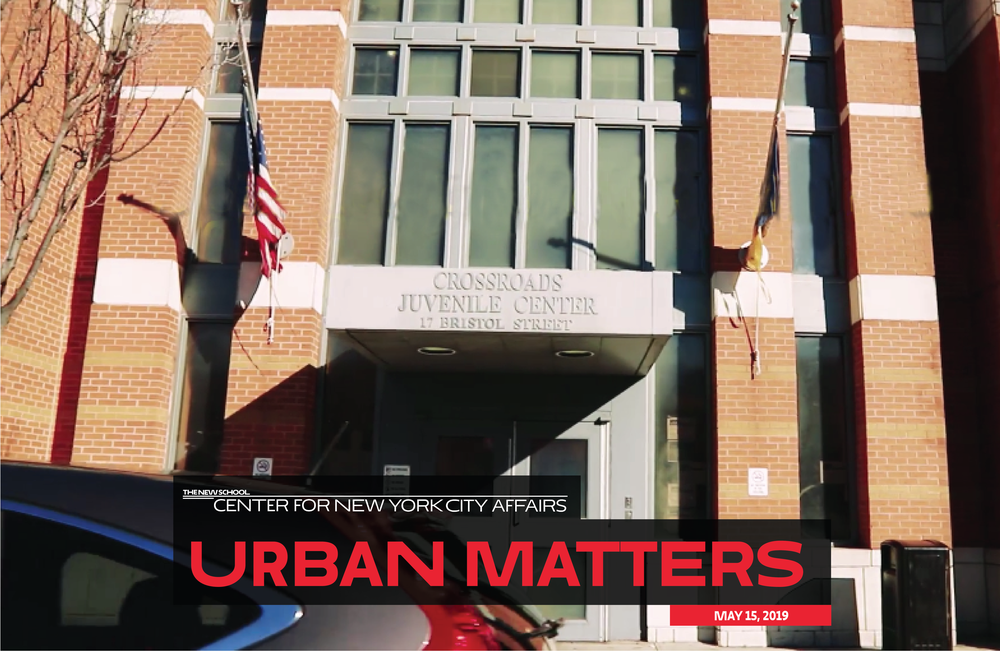
The Path to Salary Parity in Early Childhood Education
By Mai Miksic
Decades of research have demonstrated the importance of early education, especially for children from economically and historically disadvantaged backgrounds. Researchers have also cautioned that the financial returns on investments in early childhood are contingent on the quality of programming. High-quality early childhood education programs require high-quality teachers. By July this year, EarlyLearn, the City’s subsidized early childhood education program, will be merged with Pre-K for All under the City Department of Education, creating a birth-to-high-school continuum of education that includes a truly unified early childhood system. That system should include pay parity for all qualified teachers.
Whose Healing Hands? For African Americans in New York City Medical Schools, No Progress in 40 Years
By Barbara Caress
Last year, 78 African Americans graduated from a medical school in New York City. The 47 women and 31 men were seven percent of the 1,225 people awarded MD degrees from those seven schools. In 1975, the same seven schools conferred degrees on 75 African American students.
A Tale of Two Latino Communities: More Diplomas on the Other Side of the Hudson
By Kristen Lewis and Sarah Burd-Sharps
Among the most persistent human development challenges for Latinos is educational attainment; Latinos have the lowest Education Index not only in New York City, but in the New York metro area and in the country as a whole. (The Index is calculated using a combination of school enrollment rates and adult high school, bachelor’s, and graduate degree attainment rates.) But important differences exist among neighborhoods in the metropolitan area.
Creating Environmental Justice at the Local Level
A Q&A WITH ENVIRONMENTAL POLICY EXPERT DR. ANA I. BAPTISTA
With Earth Day approaching, Urban Matters spotlights a new report, “Local Policies for Environmental Justice,” from the Tishman Environment and Design Center (TEDC) at The New School. It reviews a growing movement to enlist local governments in stopping and reversing environmental health and safety hazards in low-income areas and communities of color that the report also calls "environmental justice communities." We asked Dr. Ana Baptista, TEDC’s associate director and the report’s principal author, about it.
Rebalancing Housing Court’s Scales of Justice: The First Year of New York’s ‘Right to Counsel’ Law
By Oksana Mironova
A right to free legal representation in eviction cases – combined with other important tenant protection measures – is significantly rebalancing the scales of justice in New York City Housing Court and helping keep low-income residents in their homes.
What Nonprofits Must Do to Eliminate Barriers Faced by Women of Color
By Ofronama Biu
By virtually every measure – including number of registered organizations, total employment, and overall social and economic impact – the nation’s nonprofit sector continues to grow in size and influence. Nevertheless, this steadily rising tide has not lifted the boats of all those who work for nonprofits. Specifically, women of color working in the nonprofit sector encounter systemic obstacles to their advancement, over and above the barriers faced by White women and men of color.




















